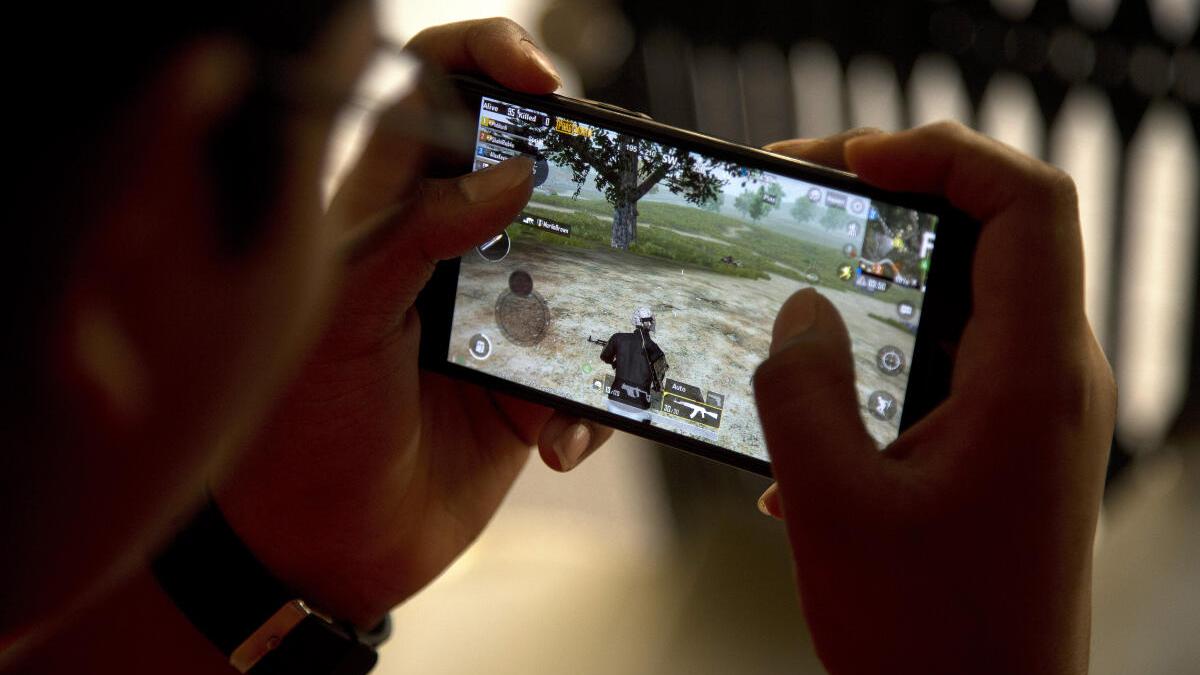
Social media, OTT, online gaming usage rises: 60% urban kids spend 3 hours daily | Data
The Hindu
Following the COVID-19 pandemic, urban Indian children aged 9 to 18 are spending more time on the Internet for leisure, resulting in growing addiction to electronic devices. This addiction leads to various negative effects, including impatience, aggression, concentration issues, and depression, with many parents unaware of their children’s online activities. A survey of over 46,000 urban Indian parents revealed that 61% of children spend an average of 3 hours or more daily on social media, videos, and online games. The survey found that 37% of children mostly watch videos, 35% engage with social media, and 33% play online games. Only 8% are not addicted to these activities. Parents reported emotional and mental impacts, including aggression (39%), impatience (37%), and lethargy (27%), but some noted positive effects like increased sociability (10%). Regarding parental consent, 73% of respondents believe it should be mandatory for children under 18 to access these online platforms. Thirteen percent suggest a minimum age of 15 for independent access, while 9% support a minimum age of 13 for joining without consent.
After the COVID-19 period, as children returned to school and face-to-face teaching recommenced, there was an upswing in the use of the Internet for leisure. A recent survey by LocalCircles indicates that urban Indian youngsters spend more and more time listening to music, viewing clips, maintaining social connections, and playing games on the Internet. This trend has given rise to a growing addiction to electronic gadgets among children aged 9 to 18. This addiction, in some instances, has manifested as impatience, aggression, concentration problems, memory issues, headaches, eye and back discomfort, stress, communication difficulties, lethargy, and even depression. In many cases, parents reported that they are unaware of the apps that their children use.
The nationwide survey aimed to grasp the primary concerns parents had regarding their children’s prolonged usage of social media, OTT, and online gaming platforms. Additionally, it sought parents’ views on the necessity of parental permission for accessing these platforms. The survey gathered feedback from over 46,000 urban Indian parents spanning 296 districts in India. Of these respondents, 62% were male and 38% were female. Respondents were from districts across tiers, with 47% from tier 1, 35% from tier 2, and 18% from tiers 3 and 4.
The survey asked about the daily Internet consumption of children aged 9-17 concerning social media, videos/OTT, and online gaming. Of the 11,507 replies received, 61% of urban Indian parents indicated that their children devoted an average of 3 hours or longer each day to these pursuits (Chart 1). To break it down, 39% said that their children used gadgets for 1-3 hours daily, 46% said 3-6 hours, and 15% said over 6 hours. Importantly, no participants said that their children abstained from such online activities.
Chart appears incomplete? Click to remove AMP mode
The survey also explored which online platforms children aged 9-17 were most engaged with. Of the 12,017 respondents, some indicated that their children were addicted to multiple mediums. In total, 37% highlighted that their children mostly watched videos/OTT (such as YouTube, Prime Video, Netflix, Hotstar) (Chart 2), 35% pointed to social media platforms (such as Instagram, WhatsApp, Snapchat, Be Real), and 33% identified online gaming (including Minecraft, PUBG, Fortnite, Among Us, FIFA, Fantasy Sports). Additionally, 10% selected “other online activities,” while 2% were not sure. A small proportion (8%) of respondents said that their children were not addicted to any of the aforementioned social media platforms, online games, or entertainment.
The survey asked parents to indicate the emotional or mental impact of social media, videos/OTT, and online games on their children. Among the 11,697 respondents, 39% mentioned aggression as an impact, followed by 37% citing impatience, 27% noting lethargy, 25% describing their children as hyperactive, and 22% reporting depression. (Chart 3). On the positive side, about 10% of parents said that their children had become more social and 8% reported that their children were happier; 2% indicated that their children were not impacted in any way.
The survey asked whether India should prioritise the mandatory parental consent for children under 18 to join social media, OTT/video and online gaming platforms. Out of the 11,798 replies, 73% emphasised the need for parental permission, 13% believed that the minimum age for independent access should be set at 15 years, while 9% felt that maintaining the minimum age at 13 for joining without consent was appropriate. (Chart 4).

The girl, who was admitted to Aster CMI Hospital with alarming breathlessness and significant pallor, was diagnosed with Wegener’s Granulomatosis (now known as Granulomatosis with Polyangiitis or GPA), a rare autoimmune condition that causes spontaneous bleeding in the lungs, leading to acute respiratory failure.

ACB files case against IPS officer N. Sanjay in Andhra Pradesh. The official is accused of manipulating the tender processes for awarding contract for development and maintenance of AGNI-NOC portal, and conducting awareness meetings for SC/STs. It is alleged that the total value of properties stolen, or involved in the case is estimated at ₹1,75,86,600.









